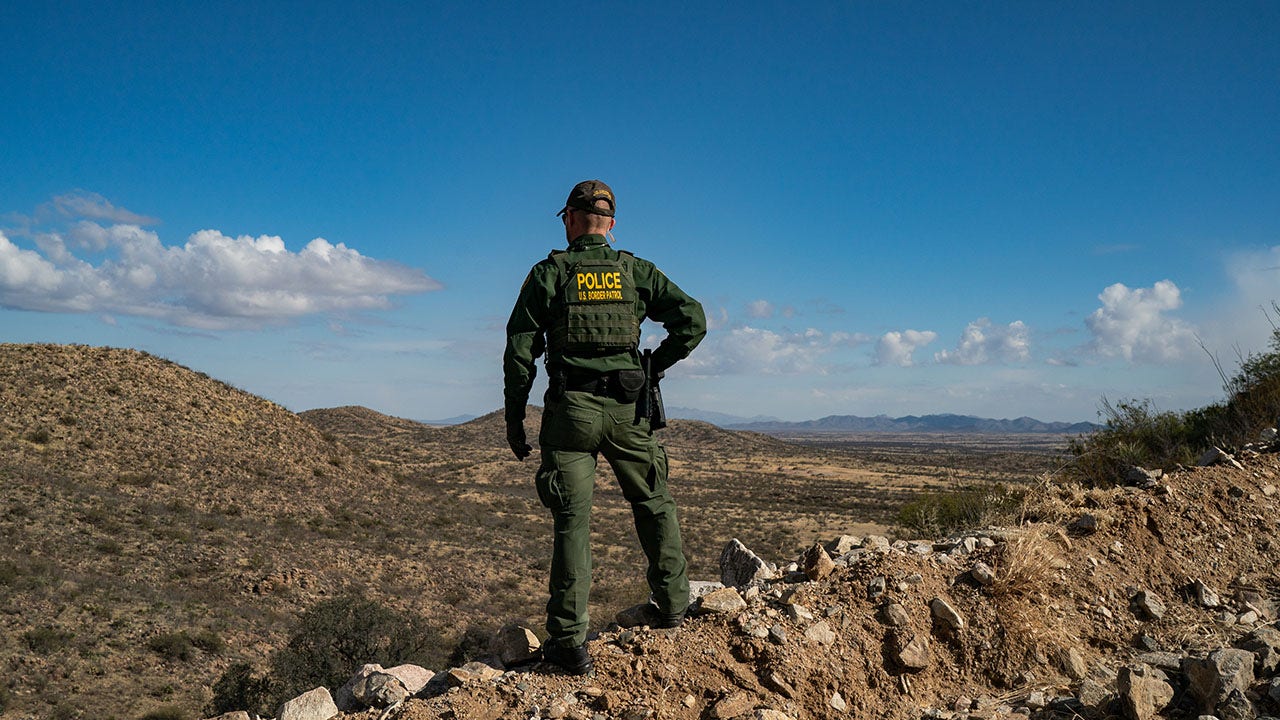Politics
Border Patrol agents to stop wearing body cameras after social media post reveals ‘security risk’

CBP Agents Discontinue Use of Body Cameras Due to Security Concerns
In a significant move, U.S. Customs and Border Protection (CBP) agents will no longer wear body cameras during field operations. This decision comes after a social media post highlighted a potential security vulnerability involving the cameras. CBP confirmed the change in a statement to NewsNation, emphasizing that all Border Patrol agents are required to stop using body-worn cameras (BWCs) in all operational environments until further notice. The directive was issued following a Reddit post that suggested a mobile application called BLE Radar, which uses Bluetooth technology, could detect and track CBP body cameras from a distance of up to 100 yards. The post also claimed that the app could potentially trigger improvised explosive devices (IEDs), raising serious concerns about agent safety and operational security.
The Security Risk and Suspension of Body Cameras
CBP officials described the situation as a "potential security risk" and immediately moved to address it. A directive was sent out to agents, informing them that the use of BWCs would be suspended pending a full investigation and the implementation of appropriate risk mitigation measures. The directive read: "Pending completion of investigation and risk mitigation, all Agents will stand down the use of their BWCs [body-worn cameras] until further notice. Additional guidance and information will be disseminated as it is received." The decision underscores the gravity of the security concerns and the urgent need to protect agents and their operations.
The Role of Technology and Social Media in Exposing Vulnerabilities
The controversy revolves around the Avon body cameras used by CBP agents, which the Reddit post claimed could be detected by the BLE Radar app. The app, developed by F-Droid, is designed to scan for low-energy Bluetooth devices, such as smartwatches, speakers, and phones. However, the post alleged that it could also identify and track CBP body cameras, potentially compromising the agents’ safety and anonymity in the field. This situation highlights how quickly technology and social media can expose vulnerabilities in law enforcement operations, forcing agencies to adapt rapidly to mitigate risks.
CBP and ICE Ramp Up Enforcement Efforts Under the Trump Administration
The suspension of body cameras coincides with increased enforcement efforts by CBP and U.S. Immigration and Customs Enforcement (ICE) agents since President Donald Trump took office. Immigration enforcement has been a central focus of the Trump administration, and these agencies have reportedly intensified their operations in recent weeks. A senior Department of Homeland Security (DHS) source revealed to Fox News that the daily average of "gotaways"—illegal immigrants who successfully enter the U.S. without being apprehended—at the southern border has plummeted to just 132 per day since early February. This represents a staggering 93% decrease from the highs recorded during the Biden administration, when over 1,800 gotaways were reported daily in fiscal year 2023.
The Impact of Enhanced Border Security Measures
The dramatic reduction in gotaways suggests that the enhanced enforcement measures implemented by the Trump administration are having a significant impact on border security. While CBP has not officially commented on the numbers, the data obtained by Fox News indicates a marked improvement in the agency’s ability to apprehend illegal crossers. However, the suspension of body cameras adds a layer of complexity to these efforts. Body cameras are not only a tool for accountability but also a means of ensuring transparency in law enforcement operations. Their removal from the field could raise concerns about oversight and public trust, even as agents work to prevent illegal entries and maintain order at the border.
Conclusion: Balancing Security and Accountability in Law Enforcement
The decision to discontinue the use of body cameras by CBP agents reflects the challenges of balancing security and accountability in high-stakes law enforcement operations. While the suspension is necessary to address the exposed vulnerabilities, it also highlights the need for continuous innovation and adaptation in protecting agents and ensuring the integrity of their work. As CBP and ICE continue to prioritize border security, the broader implications of this decision—both for agent safety and public trust—will remain a critical focus for policymakers and law enforcement leaders alike. The situation serves as a reminder of the evolving nature of security threats in the digital age and the importance of staying ahead of potential risks to protect those on the front lines.


















